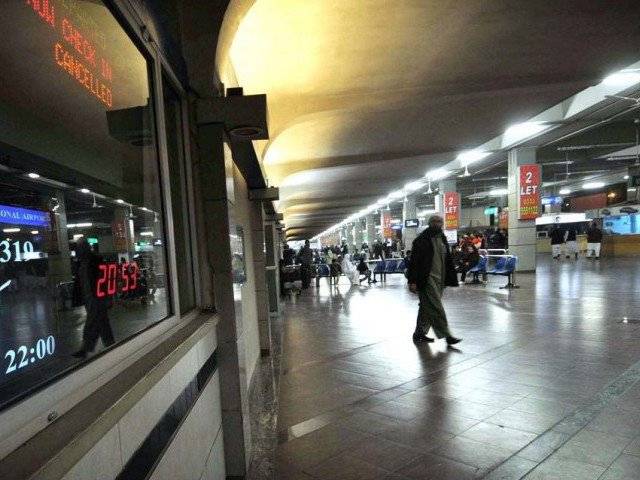In the beginning of this month, a chartered plane arrived in Islamabad from Greece. The passengers were illegal immigrants from Pakistan who were deported by the Greek authorities. Our venerable Interior Minister ordered the Federal Investigation Agency (FIA) to stop the ‘unverified deportees’ from disembarking the plane. The basis for this action by the redoubtable minister was shrouded in mystery, like the man himself. Allegedly, some of the deportees didn’t possess ‘proper documentation’ of being Pakistani citizens. Based on this criteria, at least 98% of the country needs to be deported (and probably would make things better) since we don’t really like documentation as a nation (papers, shmapers!) This ‘absurdity’—and this is a euphemism for what it actually was—resulted despite the European Commissioner specially visiting Pakistan to sort any complications out. The interior minister has a habit of invoking ‘national sovereignty’ for completely wrong reasons, apart from the affliction commonly known as the ‘foot-in-mouth disease’.
The Statue of Liberty in New York has an engraving which says: “Give me your tired, your poor; Your huddled masses yearning to breathe free; The wretched refuse of your teeming shore; Send these, the homeless, tempest-tossed to me; I will lift my lamp beside the golden door.” The poem was written by American poet Emma Lazarus in 1883, back when the American immigration policies were less stringent. I suggest that we engrave a complete antithesis of this poem on Minar-e-Pakistan in Lahore and at our major airports. Something to the tune of: “Keep our poor, our homeless, our huddled masses away from these shore”… you get the idea. Almost fifty thousand Pakistanis legally travel to Europe every year looking for work. Around half that number end up living there for extended periods illegally. Some of them form cricket teams in countries like Bulgaria, which is not entirely a bad thing (I’m not kidding, check Cricinfo listings for these teams and check the names of their players). There was a ‘Greek National Team’ in Sialkot few weeks ago. As long as our cultural export to Europe is a game that doesn’t involve killing anyone or promoting bigotry, we are fine.
Not all of these Pakistani immigrants are so warm and friendly as the cricket-lovers mentioned above. Jails and ‘detention centres’ in Greece and other Southern European countries are teeming with our compatriots. Just this month, some of our countrymen blocked the border crossing between Greece and Macedonia (Greek nationalists can substitute the last word with ‘Former Yugoslavia Republic of Macedonia’, FYROM) for Syrian refugees. They chanted, “If we don’t cross, no one does”. Quite a way to raise the green and white flag around the world. As a matter of principle, I don’t believe in borders or boundaries for countries in the current globalized world (ala John Lennon) but in that utopia everyone would just move to Sweden or Iceland. Let’s take a look at some factoids about Pakistan’s Greek connection.
Indo-Greeks ruled over India for almost two centuries during which there was fusion (not the Coke Studio variety, mind you) of knowledge and experiences from the two areas. Indians have historically been good at mathematics—and spelling Bees—so Greeks learnt some of their mathematics from the Indians. There is a reason why Alexander wanted to conquer the whole world but only reached till India. Sagala or modern-day Sialkot represented the Eastern-most outpost of the Hellenic Empire. The Kalasha people are considered by some historians to be descendants of the Greeks, but there is little evidence pointing in that direction. The Hellenic era was followed by the Kushan Empire and then the Gupta Empire. If you are getting this information for the first time, it’s not your fault, the textbooks here are designed to keep students ignorant.
For decades, Pakistanis have used the Iran-Turkey-Cyprus route to enter Europe illegally. Before the last general elections in Greece, a neo-Nazi party Golden Dawn announced in the island of Kos, “Kos has a choice. If inhabitants choose to vote for Syriza (Greek centre-left party), it will turn the place into Pakistan. If they choose Golden Dawn to govern the land, Kos will became Greece again.” The logical outcome was a Syriza victory and that did take place eventually. Modern Greece is not the same country that we associate with Plato and Socrates and similar folks. Things have changed since the Romans developed naval power. However the current finance minister is still called, wait for it, Euclid. They say, the more things change, the more they remain the same.
Despite mutual dislike and differences in geographical positions, the two countries have more similarities than expected. The political elite is corrupt, economic situation is almost always dire, involvement of the United States has been a major factor since the 1950s and people are generally good natured and god-fearing. There is a permanent conflict with neighbouring countries and military is involved in financial corruption. Lest we forget, the clergy is similarly notorious there than it is here. However, instead of providing mercenary foot soldiers, their clergy is involved in money-laundering. Different strokes for different folks, I suppose. Paschalis Kitromilides in his book ‘The Making of Modern Greece’ mentioned the creation of a “new political class and a vociferous ‘progressive’ intelligentsia that have dominated and plundered the state and the institutions of public life. The mass media abetted in the most unscrupulous way this attitude.” Sounds familiar?






